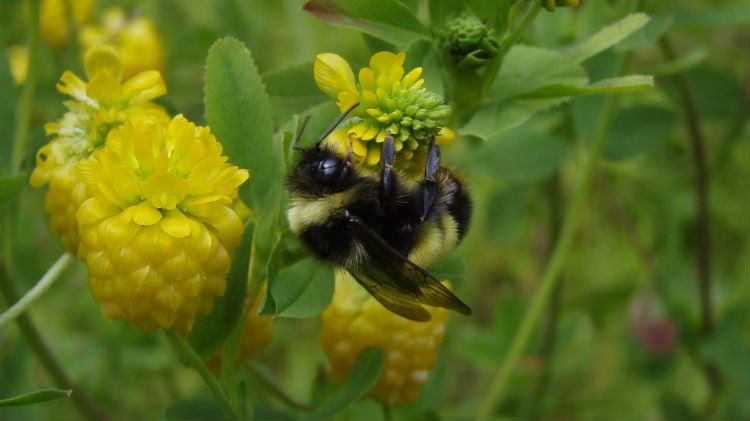With less than 20 producers in the territory, the beekeeping and honey production industry is a small yet popular one says wildlife veterinarian with the GNWT Heather Fenton.
“It’s certainly still a small-scale industry, but with potential to grow,” she says. So far hundreds have expressed interest in a symposium on Northern bee health this weekend, which Fenton is encouraged by.
“I’m really glad that people are interested in bees in general. They’re kind of one of those species, they’re very little and sometimes they can be overlooked and they do a lot of really important pollination for people.”
The symposium will gather Northerners involved or interested in apiculture to talk about challenges and benefits of Northern beekeeping and how this industry can work together with conservation efforts of native bee species.
“This opportunity is a way for these folks to connect and share their challenges, and maybe come up with some different solutions for dealing with challenges that are kind of unique to the north,” Fenton says. These challenges include the cold, long winters.
“There are some different techniques that people have been trying, to insulate the hives and provide some additional sugar water and pollen over the winter,” Fenton says. It is also a challenge to deal with waste products from the bees over the winter.
The symposium will also look at bee species native to the territory, three of which are on the NWT’s species at risk list.
“There’s been 110 species of bees in the territory, 22 of those are bumble bees, and the challenges that they face are habitat loss….use of pesticides, especially outside of the Northwest Territories…and there’s also concern that the native bees can potentially get outcompeted with introduced species.”
Ways of introducing the honeybees used in production, which are not native to North America, as well as plants people can grow in their gardens will be discussed at the event.
The symposium is free and open to the public, tickets are available here. For community members who want to pop in instead of attending the whole weekend, Fenton says a good time to come is Sunday at 12:30 p.m.




